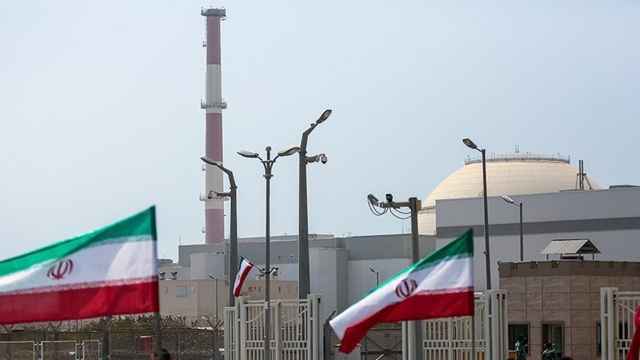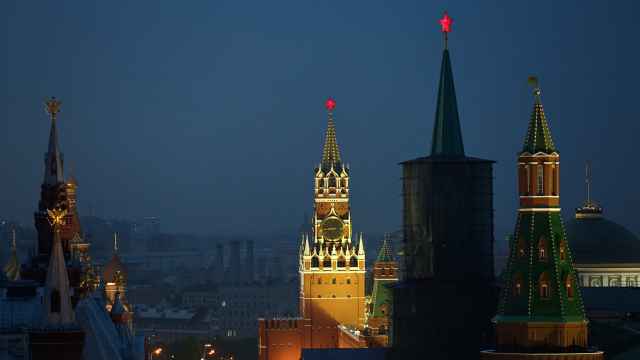Media magnate Alexander Lebedev said as he went on trial on Tuesday that he expected to be jailed over a televised punch-up, which he says is a pretext to punish him for criticizing the Kremlin.
Lebedev, wearing a dark suit and white sneakers with black laces, spent only a few minutes in court before the trial was adjourned until May 20 after Sergei Polonsky, the man he is accused of punching, failed to show up.
The financial backer of Britain's Independent and London Evening Standard newspapers acknowledged he was involved in a brawl while recording a television chat show in 2011 and denied charges of hooliganism and political hatred.
If convicted, he could face up to five years in jail.
He says the case is President Vladimir Putin's revenge for his criticism of the government and a warning to other rich Russian businessmen known as oligarchs.
"It's the government that's against me," Lebedev told reporters outside the Moscow courtroom.
The powerfully built multimillionaire jumped out of his chair and hurled punches at property developer Polonsky after he goaded Lebedev as they recorded a television talk show. Polonsky was knocked backwards and off the studio podium.
Lebedev, who co-owns Russia's main campaigning newspaper with former Soviet leader Mikhail Gorbachev, says he acted in self-defense.
"If you were attacked by a bully, sworn at obscenely and threatened with being hit in the face, would you be upset about it?" he asked reporters.
Denying the charges against him, he said, "Even if I overestimated the threat, I definitely did not cause anyone any damage, did not commit any act of hooliganism and did not show any political hatred."
Adjourning the hearing, Judge Andrei Bakhvalov said a ban on Lebedev traveling outside the country would be temporarily lifted because he had to attend another unspecified court case.
Lebedev, 53, is rare among oligarchs in speaking out against the Kremlin since the imprisonment of oil tycoon Mikhail Khodorkovsky, who was arrested in 2003 after he fell out with Putin. His Yukos oil company was broken up and sold off.
Lebedev says his own case is part of a broader clampdown on Putin's opponents, and accuses criminal investigators of acting on the Kremlin's orders to punish him for campaigning against corruption and showing sympathy with the opposition.
Lawyers for Polonsky, a one-time billionaire, have described Lebedev as a fantasist. But Polonsky could also go to jail — he was detained in Cambodia in January, accused of assault and illegal detention after an incident on a boat there.
Putin referred to Lebedev's behavior as "hooliganism" soon after the punch-up, playing on many Russians' resentment of the oligarchs who made vast fortunes as most others struggled during and after the Soviet Union's collapse in 1991.
Putin, who began a third term a year ago after the biggest protests since he first rose to power in 2000, has denied using the courts for political ends, even though several opponents face criminal charges which they also say are politically motivated.
Related articles:
A Message from The Moscow Times:
Dear readers,
We are facing unprecedented challenges. Russia's Prosecutor General's Office has designated The Moscow Times as an "undesirable" organization, criminalizing our work and putting our staff at risk of prosecution. This follows our earlier unjust labeling as a "foreign agent."
These actions are direct attempts to silence independent journalism in Russia. The authorities claim our work "discredits the decisions of the Russian leadership." We see things differently: we strive to provide accurate, unbiased reporting on Russia.
We, the journalists of The Moscow Times, refuse to be silenced. But to continue our work, we need your help.
Your support, no matter how small, makes a world of difference. If you can, please support us monthly starting from just $2. It's quick to set up, and every contribution makes a significant impact.
By supporting The Moscow Times, you're defending open, independent journalism in the face of repression. Thank you for standing with us.
Remind me later.





